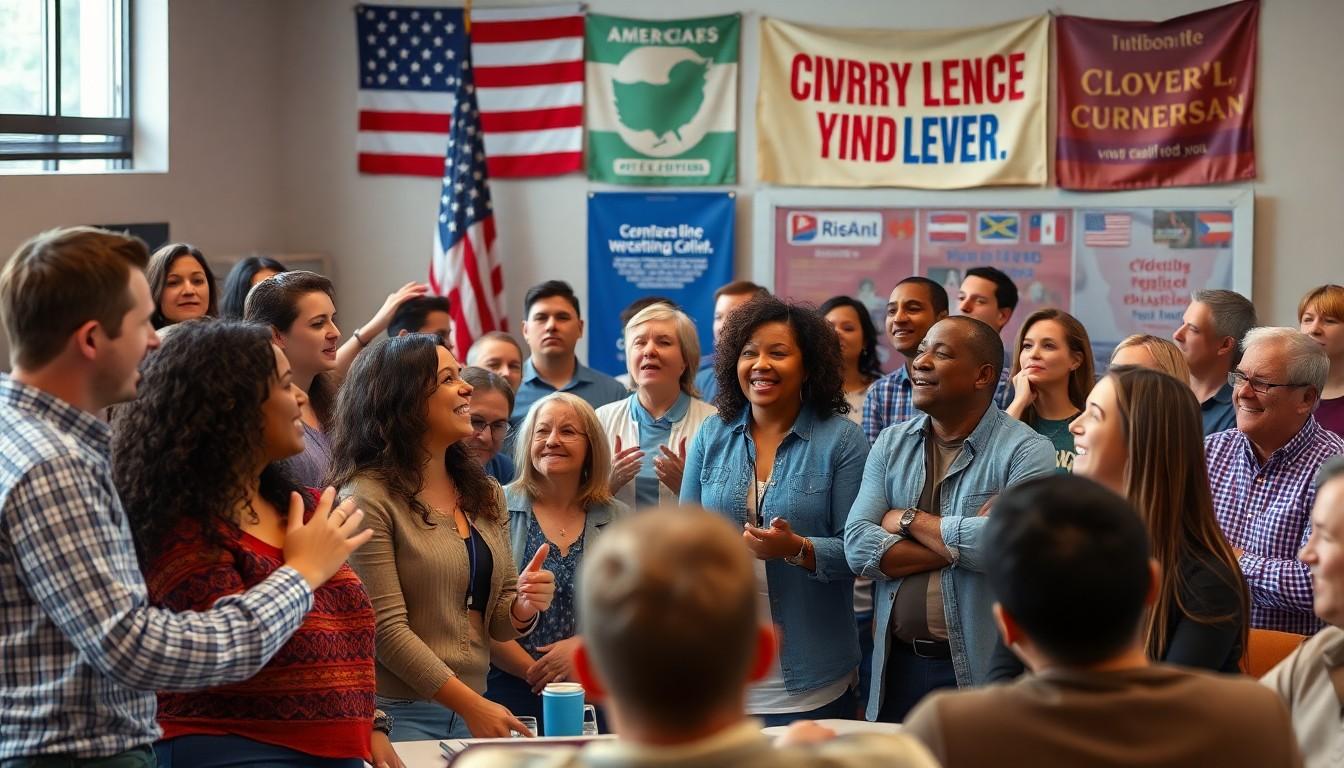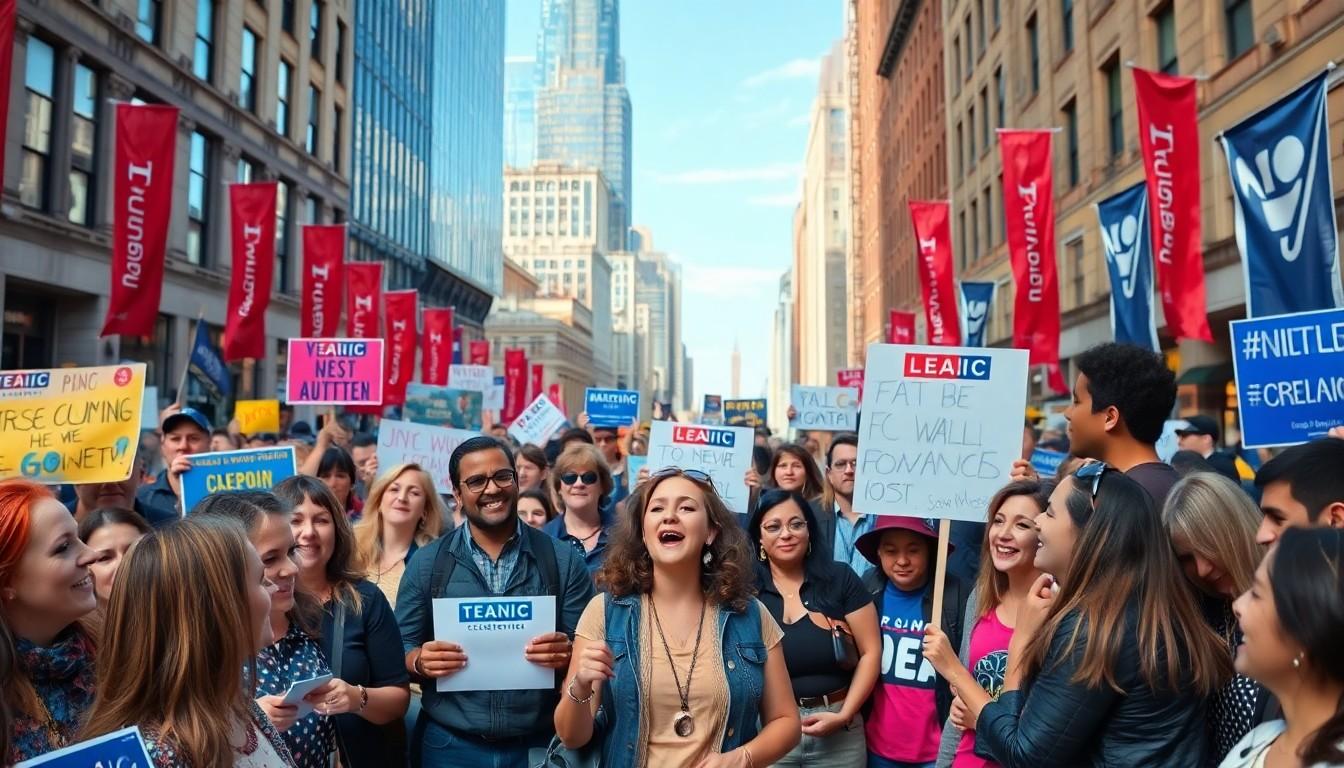The Best Fluffy Pancakes recipe you will fall in love with. Full of tips and tricks to help you make the best pancakes.

Political Behavior: Unlocking the Secrets Behind Voter Choices and Activism Trends
Politics is like a high-stakes game of chess, but with more drama and fewer rules. Understanding political behavior is crucial for anyone trying to navigate the complex world of governance and influence. From the passionate debates in town halls to the viral memes that shape public opinion, the way people engage with politics can be both fascinating and downright perplexing.
Understanding Political Behavior
Political behavior encompasses the actions and attitudes of individuals and groups towards politics. Citizens engage through voting, activism, and public discussions, highlighting the diverse forms of participation. Emotions often drive actions, shaping opinions and influencing decisions.
Participation often varies based on demographics like age, education, and socioeconomic status. Younger individuals may lean toward more progressive views, while older generations might hold traditional perspectives. This interplay between age and ideology illustrates the evolution of political thought across demographics.
The media plays a crucial role in shaping political behavior. Traditional outlets and digital platforms inform public perceptions and create narratives that resonate with audiences. Viral content can rapidly alter public opinion, demonstrating the power of social media in contemporary political landscapes.
Interpersonal interactions also contribute to political behavior. Discussions among friends and family often spark debates that influence personal beliefs and voting habits. Engaging in these conversations fosters a deeper understanding of political contexts and enhances civic participation.
Individuals motivated by specific issues, such as climate change or social justice, tend to mobilize others effectively. Grassroots movements often emerge from these passions, leading to larger-scale political actions. Ultimately, recognizing the factors influencing political behavior equips citizens to engage more meaningfully in governance.
Factors Influencing Political Behavior

Political behavior hinges on multiple factors. These elements shape how individuals and groups engage with politics.
Social Influences
Social networks play a significant role in political engagement. Friends and family can sway opinions through discussions. Groups, such as clubs or organizations, often foster shared beliefs. Events, including protests or campaigns, create collective experiences that enhance involvement. Community leaders also impact motivation by encouraging participation. Media influences perceptions; social media platforms amplify trends and narratives. Additionally, cultural norms can dictate behaviors in political contexts. Collective identities, including race or gender, further reinforce viewpoints and actions. These social dynamics establish a framework for understanding political behavior.
Psychological Factors
Psychological elements significantly shape political attitudes and actions. Emotions, like fear or hope, can drive engagement or apathy. Cognitive biases affect information processing and interpretation. Individuals often exhibit confirmation bias, seeking data that aligns with existing beliefs. Personality traits influence political participation; extroverted individuals may engage more openly. Identity formation shapes how people perceive their roles in society. Values and perceptions color political opinions, guiding choices in elections and advocacy. Motivation tied to personal interests can spur activism. These psychological factors interact dynamically within social contexts, further influencing political behavior.
Types of Political Behavior
Political behavior can be categorized into distinct types, each exemplifying how individuals and groups engage with politics.
Voting Behavior
Voting behavior reflects how individuals select candidates or decide on issues. Various factors influence these decisions, including demographics, party affiliation, and personal values. Age, education level, and income significantly impact turnout rates. For instance, younger voters often exhibit lower participation rates compared to older citizens. Additionally, psychological elements such as emotional responses to candidates can sway choices at the polls. Studies reveal that involvement in local issues often correlates with higher likelihoods of voting in elections.
Political Participation
Political participation encompasses a wide range of activities beyond voting. Individuals engage through activism, attending rallies, and joining political organizations. Involvement varies based on social networks and community connections. People motivated by specific causes, such as environmental protection or social justice, often mobilize collective action. Grassroots movements frequently arise from these shared interests, bringing communities together around common goals. Increased awareness of political issues also enhances participation rates, especially on digital platforms that facilitate outreach and connection.
Civic Engagement
Civic engagement focuses on the roles individuals play within their communities and the broader society. Activities include volunteering for community service, participating in public forums, and engaging in discussions about political matters. Such engagement fosters a sense of responsibility and connection to societal issues. Embracing diverse perspectives leads to well-rounded discussions, enhancing political understanding. Research highlights that strong civic engagement correlates with improved community well-being and informed citizenry. Encouraging discussions among friends and family solidifies beliefs and cultivates active participation in democratic processes.
Theories of Political Behavior
Theories of political behavior provide frameworks for understanding how individuals and groups engage in politics. Two prominent theories include Rational Choice Theory and Social Identity Theory.
Rational Choice Theory
Rational Choice Theory posits that individuals act based on personal preferences and perceived benefits. Decisions derive from a cost-benefit analysis, ensuring choices align with maximizing utility. Voters often evaluate candidates or policies by forecasting outcomes. Effective campaigns leverage this theory by highlighting advantages that appeal to constituents’ self-interests. This perspective aids in explaining voter turnout and party allegiance, as individuals gravitate toward options promising the greatest perceived rewards. Evidence shows that economic factors significantly influence voting behavior, demonstrating the practical applications of this theory in political contexts.
Social Identity Theory
Social Identity Theory emphasizes the significance of group affiliations in political behavior. Individuals often identify with social groups based on race, religion, or ideology, impacting their political attitudes. Group membership shapes perceptions and influences voting patterns, with individuals favoring candidates and policies that reflect their identities. Additionally, in-group favoritism often results in political alliances, reinforcing shared beliefs. The theory helps explain polarization as individuals align with groups that resonate with their values, leading to loyalty and partisanship. Observations indicate that social movements can effectively mobilize collective action through shared identities, illustrating the power of group dynamics in political engagement.
Conclusion
Understanding political behavior is essential for navigating today’s complex political landscape. It reveals how emotions and social identities influence actions and attitudes towards governance. As citizens engage through voting activism and discussions, their participation reflects broader societal trends and shifts.
The interplay of personal values demographics and media also shapes public opinion and political engagement. Recognizing these dynamics empowers individuals to become more informed and active participants in democracy. Ultimately the study of political behavior not only enhances personal understanding but also fosters a more engaged and responsible citizenry.
